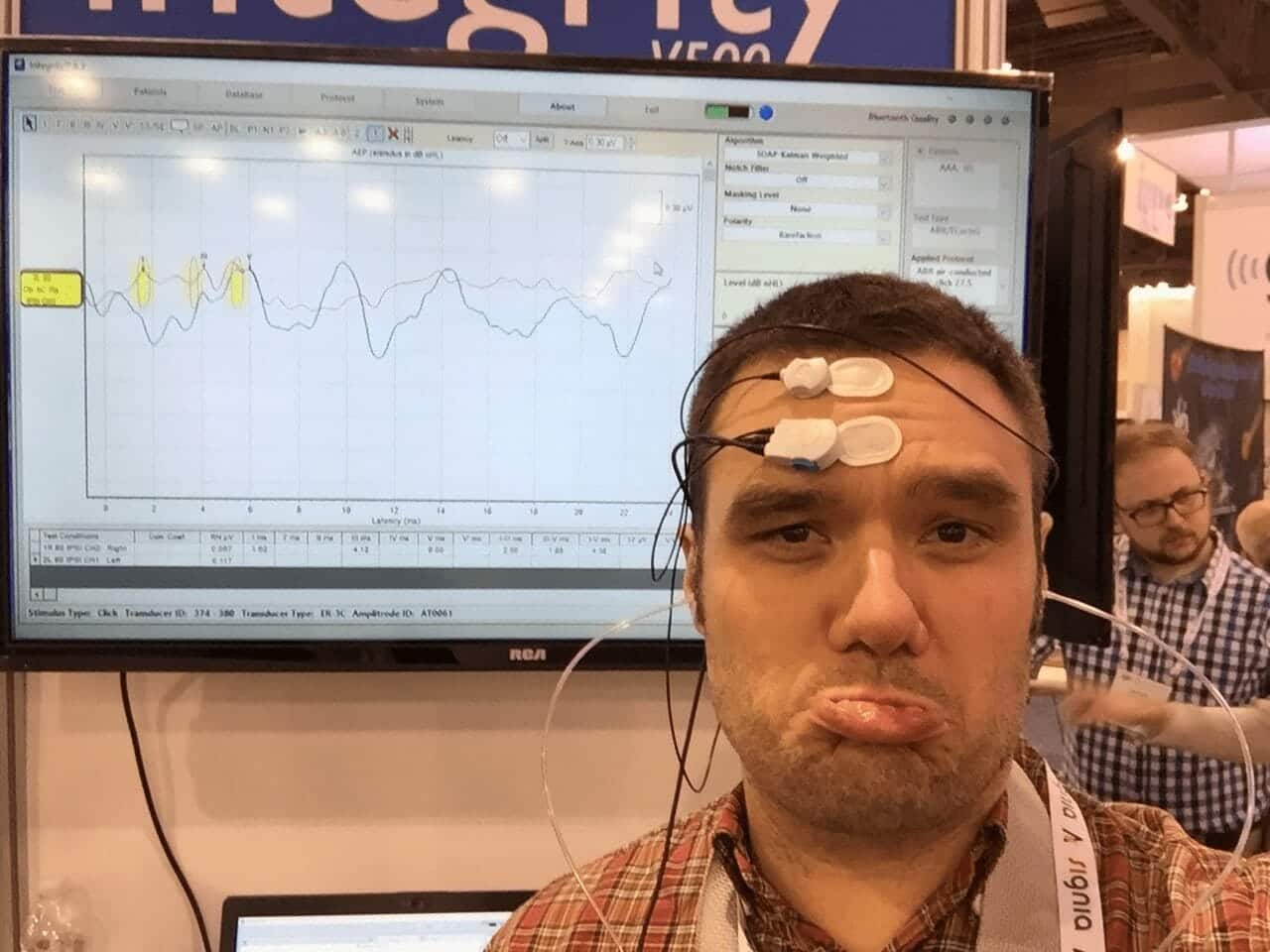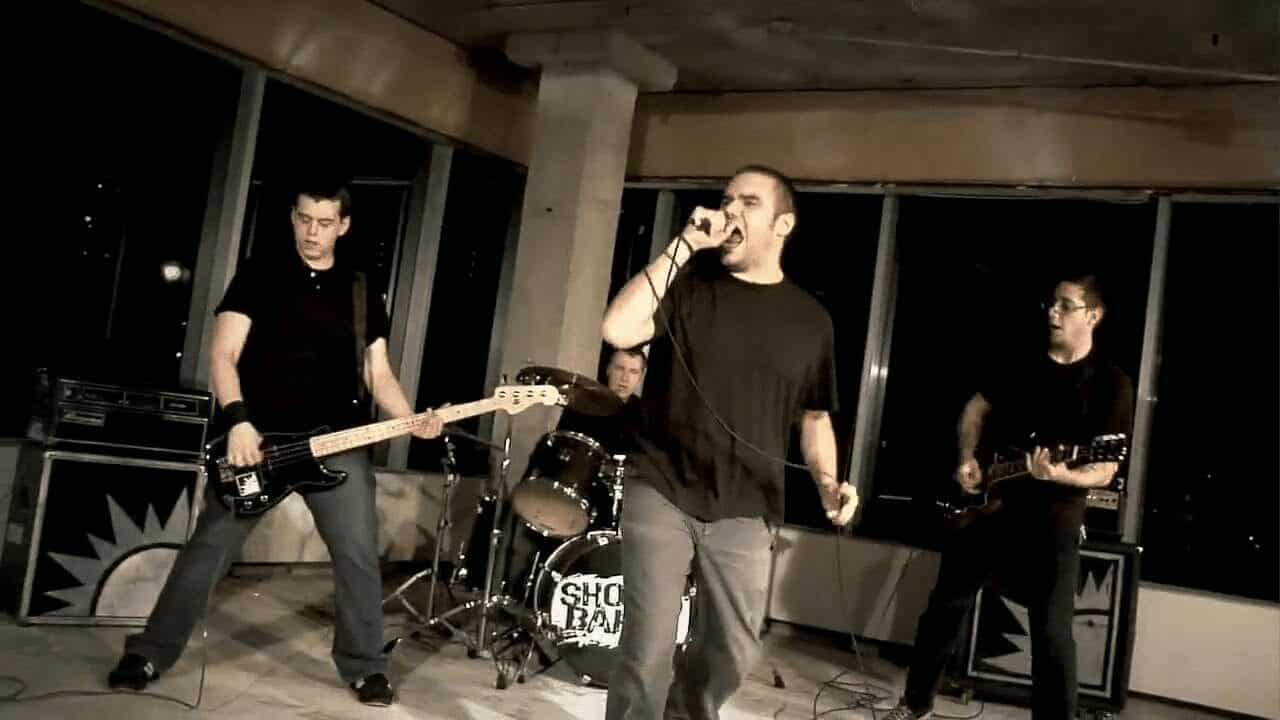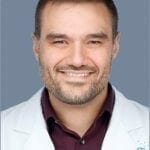By Dr. Tony Kovacs, Au.D. Have you ever been to a restaurant with family or friends and noticed your guests are having an easier time understanding the conversation? Have you found yourself leaning in to try to join the conversation, only to be left scratching your head? Hi, I’m Dr. Tony Kovacs, Sound Relief Audiologist in beautiful Fort Collins, Colorado. This restaurant scenario was exactly my experience every time I was in a noisy environment. I concluded that I must have a hearing loss. What other possibilities could there be?
Though frustrated with my limited ability to understand my friends and family,
I certainly wasn’t shocked because I’d been spending many years mistreating my ears. Before deciding to pursue my Doctorate, I had been touring as the lead singer in a (very) loud punk rock band for many years. If I wasn’t on the road blowing my ears out night after night, I was working in other areas of the music industry: running live sound at music venues, doing security at music venues, a promotion at music venues, and providing hospitality for musicians. In addition, I was practicing with my own band at least a couple of times a week when not on tour. That’s a whole lot of loudness! It wasn’t until sometime in the latter half of my music adventures that I began to wear hearing protection diligently. Like many musicians, I didn’t take the necessary precautions until I was scared into wearing hearing protection.
One night…
I recall one night at a particularly loud venue in Chicago, I had been pummeling my ears without hearing protection (as usual) and my left ear developed a very brassy-sounding tinnitus that lasted for several days. Fortunately, the nefarious sound eventually subsided but, in its wake, came other obstacles. I started having trouble understanding conversations when in restaurants, music venues, bars, and everywhere else noisy. Worse, I began to notice my “pitch perception” wasn’t as sharp as it once was. I was the singer in my band so it was very important that I was able to sing in key. I recall being in the recording studio doing my vocal tracks for my band’s forthcoming album and the producer repeatedly telling me my singing was flat. “I’m not flat,” I insisted. “I’m singing in perfect pitch.” “No, you’re flat!” shot back the producer. “You need to sing higher!” This back and forth went on for a while until he finally engaged the auto-tuner on my voice, which artificially corrects a person’s vocal pitch with high precision. Listening to my vocal track auto-tuned was irrefutable proof that I was indeed flat. I was shocked! I’d always had pretty-darn good pitch and I just couldn’t believe that what my brain was hearing wasn’t in sync with reality. I swallowed my pride and did my best to sing in key but it felt so unnatural. It felt like I was forcing my voice into unfamiliar territory, merely hoping I was in key.
Eventually, my musical endeavors calmed down…
…and I decided to return to school to pursue my doctorate in audiology. Due to my difficulty with conversation in restaurants and my compromised pitch perception, I was convinced I had some level of hearing loss. My first diagnostic hearing evaluation occurred in the audiology clinic on campus during my first semester as an audiology student. Much to my surprise, my hearing test revealed my hearing was within normal limits! I thought some mistake had been made. I had clearly damaged my hearing and it was evident in multiple areas of my life! The hearing test left me totally confused about what was going on with my hearing.

Several Semesters Later…
It wasn’t until several semesters later that I found out the answer to the puzzle. In one of the advanced courses, my fellow future-doctors and I learned how to conduct more advanced testing called Otoacoustic Emissions (OAE). This testing evaluates the structural integrity of the hearing organ (the cochlea) and is often used for estimating hearing ability in people who can’t perform a traditional hearing test (newborn babies, for example). The OAE test is automatic and requires no participation on behalf of the person being tested. OAE testing can only be regarded as an “estimation” of hearing ability because, while it’s very precise in measuring how well the cochlea is working, it cannot predict how well the central nervous system (the brain) is processing sound.
The Phenomenon of Hidden Hearing Loss
The first time I underwent a diagnostic OAE test, I was shocked to find that my cochleas were not functioning normally! “How could this be?!” I thought. “My standard hearing test is perfectly normal!” As it turns out, the many years of enduring hazardous levels of sound while playing in my band had indeed done some damage to my hearing. Just not enough damage to affect how quietly I could hear sounds. But, while the volume of the world around me isn’t a problem, the clarity of my world is compromised. This phenomenon is called “hidden hearing loss.” It’s “hidden,” because it doesn’t show up on a traditional hearing test.
The difference between my hearing…
…(with hidden hearing loss) and that of a teenager with perfect hearing lies not in volume but in clarity. We both may be able to hear the beeps at an equally low volume during a standard hearing test, but the teenager with perfect hearing simply has more precise hearing acuity than I do. It’s like the difference between watching an old television from the 1970s versus a high-definition flat-screen television available today. The colors may be equally bright on both televisions, but there is a major difference in clarity.
Once I understood that my clarity is compromised…
…due to some preliminary damage to my hearing, everything started to make sense. No wonder I couldn’t pick out speech sounds from all the racket in a noisy restaurant like peers could. No wonder my near-perfect pitch that I enjoyed as a young singer is now significantly flawed. Just knowing what was happening to me was a huge weight lifted off my shoulders.
Does this situation resonate with you?
I know some of you are thinking: “Alright, detective. I get it and I’m in the same boat. My hearing is good but my clarity kinda stinks (especially in noisy environments like restaurants). I may have hidden hearing loss. So, what the heck can I do about it?!”
What to Do About Hidden Hearing Loss
First thing’s first: Get a diagnostic hearing evaluation!
You should do this as a minimum because knowledge is power – and a huge relief in my case. The more you know about your hearing health, the better you can take steps to optimize your hearing health! If your hearing test reveals normal hearing, there are some excellent management strategies you can use to ensure you’re getting the most out of your surroundings and never again have to retreat into your own world while loved ones around you are enjoying great conversation over dinner.
Second thing’s second: Protect your hearing!
If you have tinnitus or you suspect some damage has already occurred, protect your hearing. I can’t stress this enough. As a Doctor of Audiology, it hurts my heart when someone says, “I’ve already done damage to my ears; what’s the point in wearing hearing protection?” (Just typing that quote gives me chills!) If damage has been done, you’ve weakened your auditory system. A more fragile auditory system is more susceptible to further damage than a healthy auditory system. You’ve got plenty of good hearing still to work with! Why compromise that?!
As a mentor of mine…
…used to say: “If someone chopped your finger off, would you next let them take your whole arm?!” If you have any thoughts or questions about hidden hearing loss, I’d love to hear your feedback! I can be reached at drkovacs@soundrelief.com. In the meantime, love your hearing and love the life you live. 😊 Dr. Tony Kovacs


